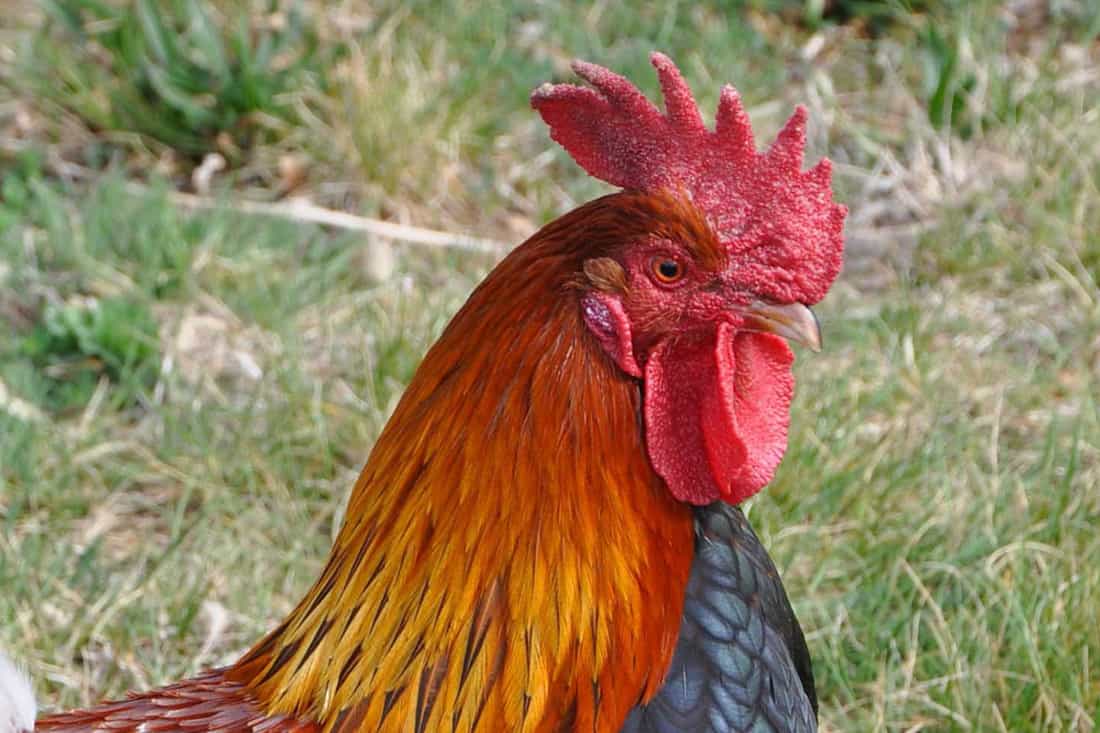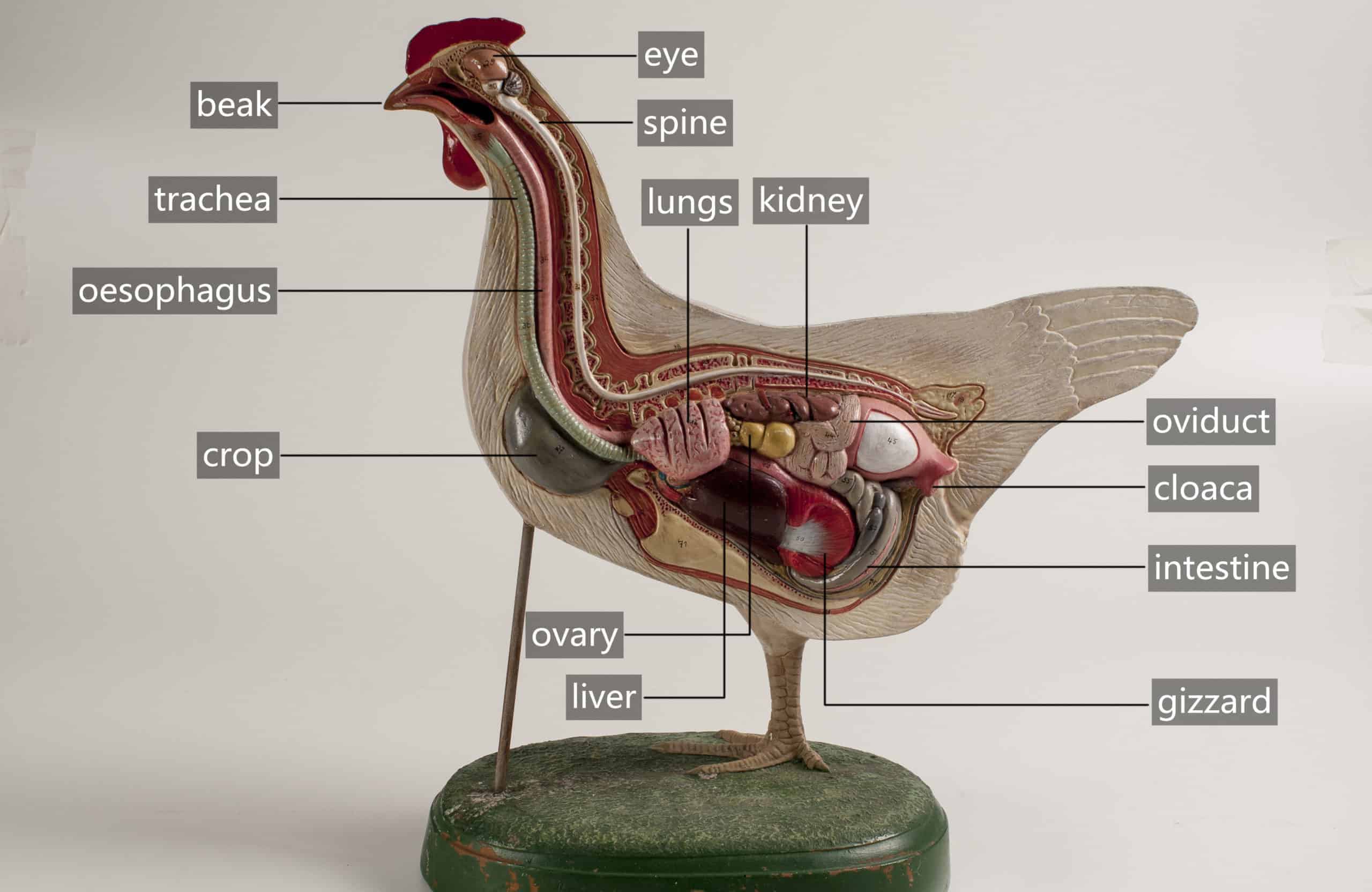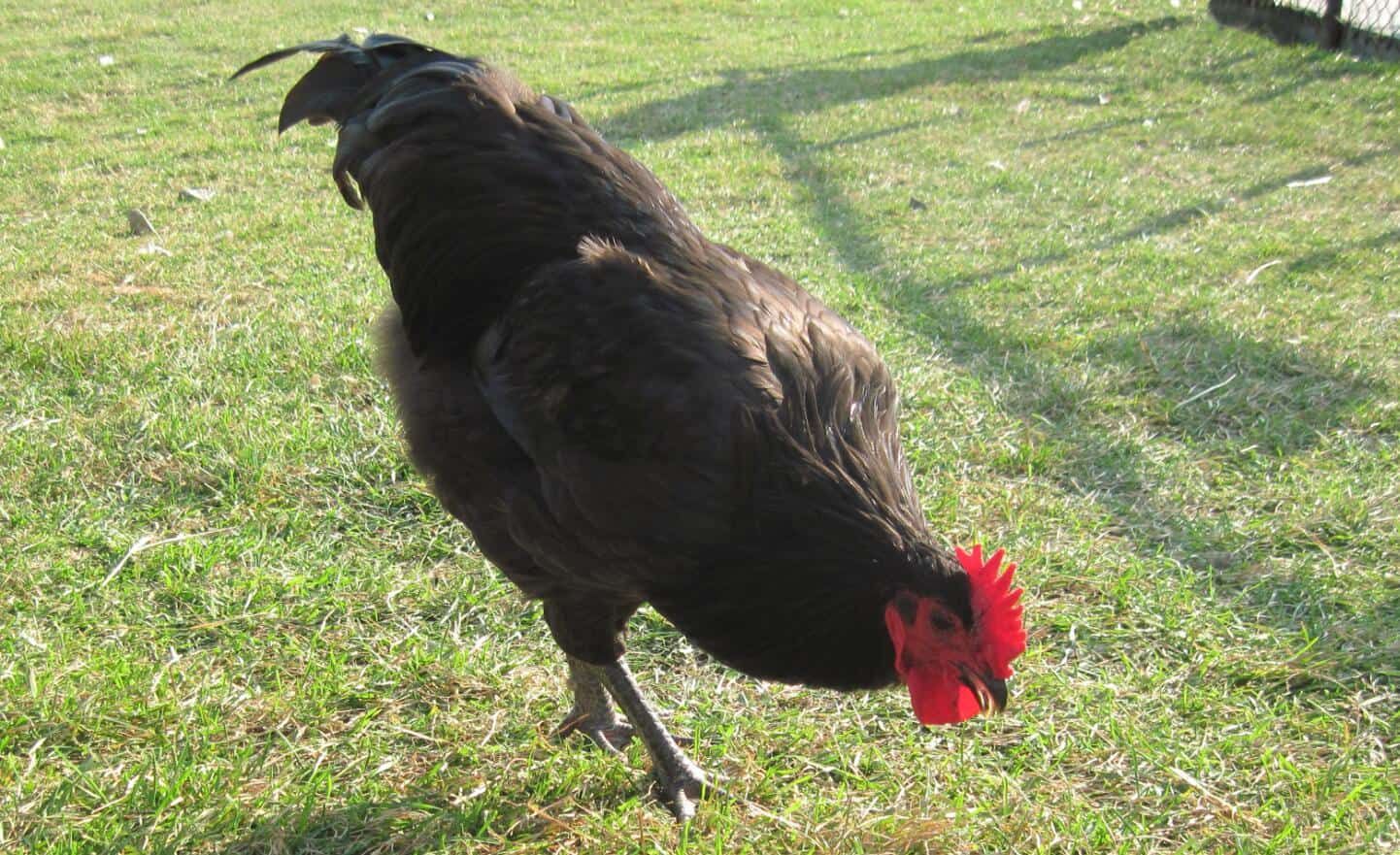Getting to know more about flocks can lead one to ask the question, “Can chickens smell?” This is a very valid question as externally, there is no bump-like and clear feature found on a chicken’s face, just like how noses in humans are. In other words, they do not have much emphasis on their noses.
A Chicken’s Anatomy: Stand Out Squad
To further understand how the chickens live and how their bodies work, it’s essential to study their body parts and know what they are for. Chickens are built differently. A lot more different than how human bodies are made. And so, it may take some time to understand them fully, so starting early on is a good idea.
Feathers
One of the main characteristics of distinguishing birds is their feathers. The feathers seen on birds are not just there for style. They serve a lot of essential purposes in your chicken’s body. Feathers are there for various reasons, including the following:
- Flight – Feathers serve as lifts in order for them to fly a short distance.
- Warmth – Like how jackets and blankets work for us humans, feathers on chickens help them insulate. The feathers provide heat when the weather starts to get too cold. It also works vice versa! When the days get warmer, the feathers also help in keeping them cool.
- Protection – Just like how raincoats would protect us from the rain, feathers are also their layer of protection from harmful elements.
- Camouflage – Animals use camouflage to blend in with their surroundings and to protect themselves through hiding when needed.
- Courtship – Yes, chickens have courtships too. Their feathers are used to impress a mate and also indicate their interest in the potential partner.
Beak

One of the things birds have in common is their beaks. This is one of the things that set them apart from other animal classes. Their beaks have three functions. These functions are as follows: they act as their mouths, protect, and break up their food before swallowing. Chickens do not have teeth, so they need a little bit of help for easier digestion, and their beaks are huge helpers for this.
Comb and Wattles
These features are prominent, especially on chickens, as they range from a lighter shade or a darker shade of red. They are stunning showstoppers because of their color. Their function is not quite yet established, though. However, they are believed to help them cool their blood.
These features are only those that stand out for chickens. As evident, there is no mention of a nose standing out on chickens. And so, the mystery and question are justified. Can chickens really smell?
Sensory Organs
It’s apparent to almost every person how the senses work as it has been introduced to people as early as they are born. The human body has five senses, namely the sense of sight, touch, smell, taste, and hearing. Chickens also have the same deal going on with them. They may have the same number of basic senses as humans, but human senses and animal senses vary.
The nervous system is one of the essential systems in our bodies. The organs involved here are mainly in charge of the body’s command. In short, it is the command center of the whole body. The nervous system is responsible for both voluntary and involuntary controls.
A Chickens Anatomy: The Five Senses
The sensory organs of the body are the parts that have first-hand access to the sensory capabilities of the creature. This allows them to send a message to the brain and elicit a specific response. Here are the five primary sensory organs of chickens.

- Eyesight – Chickens have excellent eyesight. Their eyes are relatively bigger in ratio with their heads and are equally distributed on both sides of their faces. An interesting fact about their vision is that their individual eye can focus on different things at the same time. This expands their perception to more than what humans are capable of. Humans have three cones that let them see red, blue, and green lights. For chickens, they have two more! They are able to see UV light and the other cone allows for a heightened sense of movement. These birds can see movements so tiny that it’s unnoticed by human eyes.
- Hearing – Chickens do not have a visible bump of earlobe hanging around their heads. Well, they may lack earlobes, but their sense of hearing is impeccable. Their ears are well developed, and it is next in line as the most important sense. When a chick is not yet hatched, they are already capable of listening to their mothers. This way, they are able to recognize their mothers by the sound of their voices.
- Taste – Chickens have hard tongues. Their taste receptors are very few compared to humans, so they are not much of a taste-centric creature. The position of these taste receptors is also located pretty far back in their mouths, so they may not have the chance to taste what they eat at all.
- Touch – This is another critical sense as it allows the chicken to feel and detect heat, pressure, warmth, cool, etc. Their beaks are very sensitive too.
- Smell – The answer to the main question is yes, chickens can smell. However, their sense of smell is not as crucial as their other sensory organs. Nevertheless, it is still instrumental in keeping themselves guarded and safe. Chickens have scents that they don’t like. Also, they are capable of smelling dangerous things for their well-being, like ammonia.
A Chicken’s Sense of Smell and Its Ways

Sense of smell appears to be not as crucial as the sense of sight and hearing when it comes to flocking sensory organs ranking. While this is understandable, it’s also important to remember that this does not mean the sense of smell is totally useless. In fact, the sense of smell has its own function and helps your chickens in many more ways than people might have been expecting.
Chickens literally have the capacity to smell danger. In simpler terms, they can smell predators and danger! In modern research, scientists have proven how chickens respond to different odors or scents.
In the experiment, they placed predator odors in different zones and left the other zones typically. Now, the striking thing about this experiment is that the chicken reacted differently when presented with these odor cues.
This has proven that they indeed have a sense of smell that can distinguish between safe and unsafe environments. Perhaps they have formed their own odor cues as they live their lives.
On the other hand, chickens are believed to be able to smell and distinguish some nutrients that will be going inside their bodies. In other words, they are able to differentiate the foods that come in contact with them through the nutrients present. This is one of the explanations why chickens have their favorites too!
Chickens have been using their sensory organs to survive over the last thousands of years. Their smell has been tremendously helpful, too, despite the less recognition it sparks. Chickens use their sense of smell in doing so many things, including surviving every day.
Their sense of smell helps in essential functions like navigating, foraging and identifying individuals. While it may differ from chicken to chicken, one thing is for sure; chickens can smell and sense danger. They may be slow in tasting, but they sure are vigilant for anything smelling toxic.
Smells That Chickens Hate

Like how humans hate a certain scent of a perfume they bought, chickens have smells they dislike too! Well, chickens have their individual personality too, so whatever they love or hate may vary considerably, just like how human’s taste in music works, for example. However, there are apparent smells that clearly displease them. Here are some of them.
Chickens hate the smell of citrus. Perhaps, it’s too strong, and some owners argue that it may be toxic for chickens. However, there is no evidence for this, so it can be possible that they just do not prefer citrus.
Herbs with strong odors are also not up to their alley. Understandable as they hate citrus. Also, although humans love lavender, chickens, on the other hand, do not like it so much. Adding to the list are marigold, catnip, spearmint, and chives.
As mentioned earlier, chickens can smell ammonia. Ammonia is different from these herbs and citruses. Ammonia is actually deadly for chickens. Thus, even a tiny amount of ammonia can already alarm chickens.
Humans have made use of these things to keep chickens away from certain gardens and plots in their backyard. People have been using plants as chicken repellents to keep them away from plants they want to protect. Remember to keep the chickens safe and do not use dangerous things to keep them out.
Summary
So, Can chickens smell? The answer is a clear yes. Their sense of smell may not be as strong and developed as dogs, but it is sure to be existent and perhaps as good as humans at some point, considering they can smell dangerous substances like ammonia. With this added knowledge, owners now have a clearer idea of their flock’s safety.


Joseph Hudson has been raising chickens for over 15 years. In 2018, he completed the Agriculture & Natural Resources program at Mt. San Antonio College. He currently raises over 1400 chickens on his 7.5-hectare farm. He keeps sharing his experience on raising healthy and happy chickens on Chicken Scratch The Foundry.








